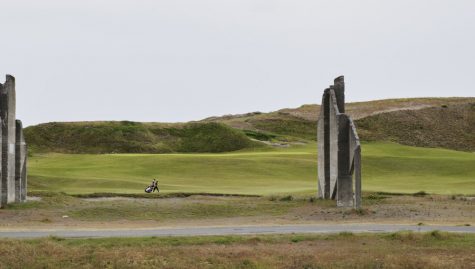Societal shift in focus can create new understanding
Students and professors are taking silence as sabbath in the wake of COVID-19
May 13, 2020

“The sheer silence of urban and suburban areas is … eerie, it’s a bit unnerving, and it does seem a little dystopian … nonetheless, though, there’s this incredible peaceful feeling about it,” said Bo Lim, associate professor of Old Testament at Seattle Pacific University.
In this statement, Lim perfectly encapsulates the feeling that many are experiencing in the midst of the COVID-19 pandemic. When venturing outdoors, the regular stream of Seattlites rushing to work or scrambling to soak up some of the long-awaited sunshine after the winter gloom has vanished overnight due to social distancing protocols.
The world is missing an integral aspect of life: the physical presence of community. But without the white noise of cars passing by and footsteps on concrete sidewalks, what is left to fill that space?
Lim suggests a couple of ways of addressing this eerily peaceful silence in ways that add to our experience of this season: looking outward and looking inward.
The first is achieved by searching for all the things that go overlooked in the busyness of everyday life. Dr. Lim and his wife on their walks notice the trees. Even on campus one can observe the trees filling with flowers, then leaves, then seeds and fruits. With an open window, one can listen to the birds carrying the sunshine in their melodies.
The second perspective is made by taking a moment to introspectively take stock. A great example of this is the Psalms course that Lim teaches every spring quarter, which walks through the artistic display of an introspective dialogue painted in the Psalms. The psalmist speaks of moments of worship and jubilee, moments of frustration, of lament, of sorrow and so many other emotions experienced throughout life.
“This is a wonderful opportunity to be authentic … with God, our relationships with others, and even with ourselves,” Dr. Lim challenged his students.
While some may have the luxury of this silent sabbatical, others are busy creating lesson plans, working to support their families with cut work hours and trying to find ways to still study in a scary and uncertain world.
Vice Provost of Academic Affairs Cindy Price, in an interview over Zoom, to a moment to remind students at SPU of the challenges that this university is tackling as a community. There are countless faculty members, admissions staff working tirelessly to make this quarter possible, many of whom are working from home have taken on new responsibilities on top of the normal necessity to prepare for classes, are preparing for an incoming class of students next year and countless other unseen tasks that are taking place behind the curtain.
In a matter of days, all professors, staff members and faculty leaders had to find ways that allow for the same loving community to connect and support each other during the COVID-19 pandemic. This task has become increasingly difficult as students and staff alike are coming to fully comprehend how long this crisis and its consequences may last.
“We miss the spontaneity of yelling across [campus] and of running into friends at Gwinn,” Price said over a Zoom call.
Students are fondly remembering the happenstances that come from running into classmates on the grassy slope known as “Hill Beach” or walking into a game of spikeball in the Loop. Price, though, suggested that one of the main frustrations of students and the SPU community are stemming from an attempt to “shoehorn our expectations” of what a normal spring quarter is supposed to look like, and frankly “that’s just not possible right now.”
Instead, Price recommends that they focus on making the connections they want to make intentionally. Right now, there is a wonderful opportunity to purposefully talk to the people each of us cares about in the middle of this difficult season.
Price even mentioned that she has found that one of her longest surviving friend groups, which started out of her own university experiences, has found more time and space to talk now since they all went their separate ways after graduation.
And that’s the magic of this sabbath. Whether one chooses to spend their time becoming more aware of the world around them, or finding new ways to show loved ones that they want to care for their relationships, each person has the opportunity to use this eerie, peaceful sabbath to its fullest.

























































































